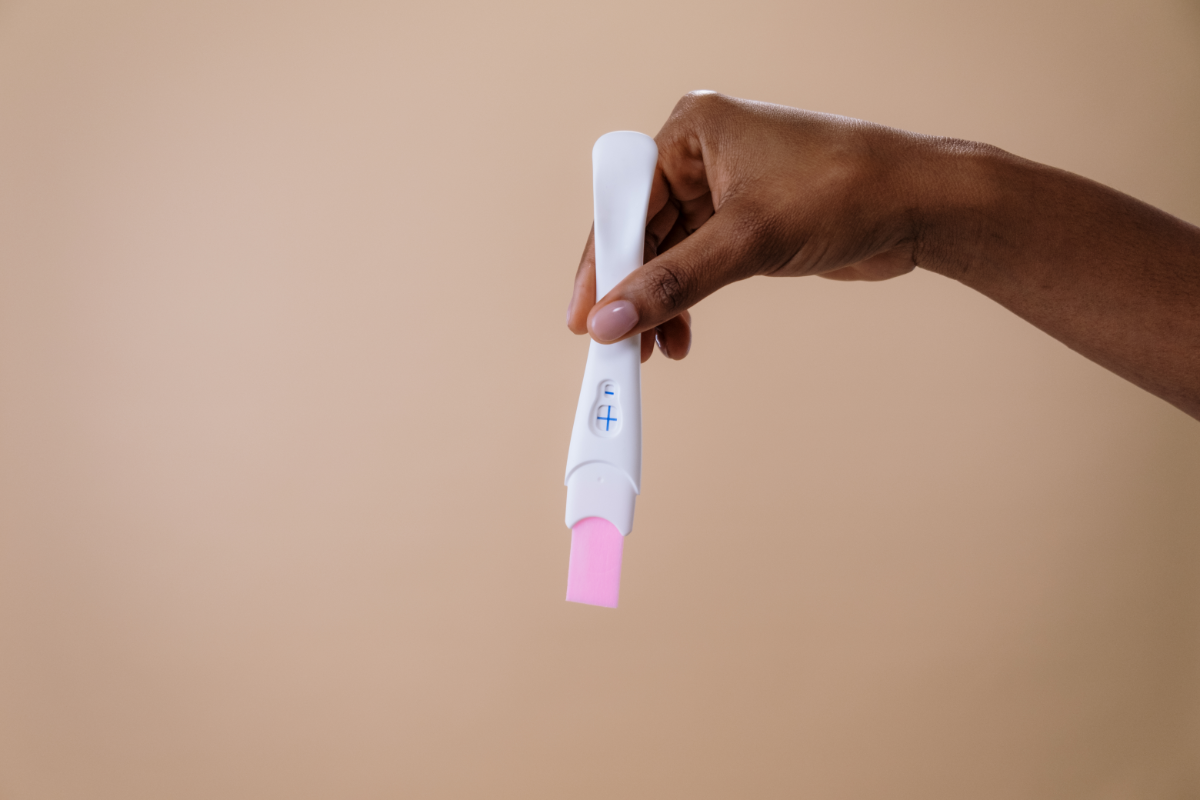Back pain is one of the most common complaints experienced by pregnant women. Lack of nutrients (magnesium in particular), lack of physical activity, health problems… There are many possible causes. But in the majority of cases, back pain is linked to weight gain during foetal development. Whatever the case, in this article we give you some solutions for relieving back pain during pregnancy.
Physiological causes of back pain during pregnancy
During pregnancy, a woman’s body undergoes a number of physiological changes that can contribute to the onset of back pain. Among these changes, two factors play a predominant role:
- Increase in the volume of the uterus: As the baby grows, the uterus enlarges and takes up more and more space in the abdomen. This increase in volume causes the centre of gravity to shift forward. To maintain balance, the mother-to-be often tends to arch her back, resulting in hyperlordosis, i.e. increased curvature of the lower back. This excessive arching can put extra pressure on the lumbar vertebrae, leading to pain.
- Loose Ligaments: During pregnancy, the body produces hormones such as relaxin and oestrogen in greater quantities. These hormones cause the ligaments in the body to relax, including those that support the spine. This relaxation of the ligaments increases the mobility and flexibility of the joints, which can lead to instability in the lumbar region, aggravating back pain.
These physiological changes are natural and necessary to accommodate the growth of the foetus and prepare the body for childbirth. However, they can also increase tension in the back and joints, leading to the lower back pain that many pregnant women experience. Understanding these causes helps us to understand why back pain is common during pregnancy and to adopt appropriate preventive and curative measures.
The psychological impact of back pain
Back pain during pregnancy is not limited to physical pain. It also has a significant psychological impact, which can affect the state of mind and emotional well-being of the mother-to-be.
Managing stress and anxiety
Chronic back pain can lead to high levels of stress and anxiety. Constant pain can make it more difficult to manage daily tasks and responsibilities, increasing feelings of worry and frustration. To cope, it is crucial to develop stress management strategies. Techniques such as meditation, mindfulness and deep breathing can be of great help. These methods help to refocus the mind, reduce stress levels and encourage a calmer approach to pain. In addition, activities such as prenatal yoga are recommended for their ability to relax both body and mind.
Emotional support
Emotional support plays a key role in managing pain and stress. It is important that the mother-to-be feels supported and understood by those close to her, including her partner, family and friends. Taking part in support groups for pregnant women can also be beneficial. These groups offer a place to share experiences and advice and to receive encouragement from other women going through similar situations. It may also be advisable to consult a mental health professional, such as a psychologist, if the stress or anxiety becomes too overwhelming. Professional support can help to develop personalised strategies for effectively managing the stress and anxiety associated with back pain during pregnancy.
In summary, although back pain during pregnancy is often considered from a physical perspective, its psychological impact should not be overlooked. Effective stress management and adequate emotional support are essential for the well-being of the mother-to-be and for a more serene pregnancy.
How can I prevent back pain during pregnancy?
During pregnancy, adopting good postural habits and making the right gestures on a daily basis are essential for preventing and limiting back pain. Here are a few practical tips:
- Self-expansion in the Standing Position: When you are standing, imagine a thread pulling you upwards from the top of your head. This visualisation helps to align your spine and reduce tension in your lower back. Keep your shoulders relaxed and in line with your hips, and make sure you distribute your weight evenly over both feet.
- Adopting the right sitting posture: When sitting, it’s important to keep your back straight and to stretch yourself, as when standing. Avoid slouching or leaning against the backrest incorrectly. Place a cushion in the small of your back for extra support and use a footrest to keep your knees at a comfortable angle.
- Techniques for getting up from a chair: To get up from a chair, start by bringing your feet forward under your centre of gravity. Keeping your back straight, lean forward slightly and use the strength of your legs to stand up, rather than pulling on your back.
- Getting out of bed correctly: To get out of bed, roll onto your side, bringing your knees towards your chest. Use your arms to push yourself into a sitting position, then pivot to put your feet on the floor. This technique helps to minimise the pressure on your back.
- Stooping and lifting: When you need to stoop, bend your knees and keep your back straight, rather than bending from the waist. To lift an object, bring it closer to your body and use the strength of your legs to straighten up.
By incorporating these gestures and postures into your daily routine, you can help prevent and reduce the back pain associated with pregnancy. These simple but effective adjustments are designed to accompany body changes and offer extra support where needed.
Regular physical activity
A sedentary lifestyle is often the cause of back pain, particularly during pregnancy. When the body is not moving regularly, the joints and blood circulation are less ‘broken in’. To alleviate this problem, it’s essential to get moving and make some physical effort on a daily basis. Specialists recommend walking for 30 to 45 minutes a day. Swimming and prenatal yoga are also recommended. These three activities are certainly the best way to prevent and relieve lower back pain.
Get a professional massage
When you’re experiencing intense back pain, it’s best to go to a physiotherapist for a massage. Of course, your husband or a family member can do it for you. However, it is strongly recommended that you turn to a specialist to avoid aggravating the situation. To do this, consult your GP, who will prescribe massage sessions with a professional.
Use a support belt
A support belt can help reduce back pain in pregnant women. There are several high-quality models on the market. Would you like to use this alternative to treat your back pain? Choose a support band that adapts to the progress of your pregnancy. In fact, this model is usually made from a stretch material. So you can breathe easily and your joints are comfortable.
Look after your diet
Back pain during pregnancy is often due to excessive weight gain. This is because the lower body and spine have to bear extra weight every day. To avoid this inconvenience, it’s essential to rebalance your diet. Choose natural products rather than processed ones. Mind you, this is not about following a restrictive diet! The aim is to vary the foods you eat as much as possible. So, at every meal, increase the amount of fruit and vegetables on your plate. Also, eat foods rich in nutrients and trace elements, especially magnesium, which reduces fatigue.
Wear comfortable shoes
Absolutely avoid wearing heeled shoes when you’re pregnant and have back pain. They exacerbate the pain by increasing the pressure exerted on the pelvis and lumbar vertebrae. The best option is to choose shoes with flat soles. As well as being comfortable, these ensure that your body weight is well distributed. What’s more, they give you stability on the ground during your daily walk.
Yoga and meditation to relieve back pain
Yoga and meditation are excellent ways of improving general well-being during pregnancy, particularly for relieving back pain and reducing stress.
Beneficial yoga postures
Practising yoga during pregnancy can be extremely beneficial for relieving back pain. Some postures are specially designed to strengthen the back and improve posture, which is crucial for reducing back pain. For example, the mountain pose(Tadasana) helps to align the spine, while the cat-cow pose(Marjaryasana-Bitilasana) offers an excellent way to relax and tone the spine. The child’s pose(Balasana) is another soothing option, offering deep relaxation of the back and a reduction in tension. It is important to practise these postures under the guidance of a yoga instructor experienced in prenatal yoga, to ensure the safety and effectiveness of the exercise.
Meditation for stress reduction
Meditation is a powerful tool for managing stress and anxiety, which can often accompany pregnancy and aggravate back pain. Meditation techniques such as mindfulness meditation and guided meditation help to calm the mind and reduce stress levels. By concentrating on breathing and practising mindfulness, pregnant women can achieve a state of deep relaxation, which is beneficial for both mind and body. Meditation can be practised anywhere and at any time, making it an accessible and flexible way to deal with everyday stress.
By combining yoga and meditation, pregnant women can not only ease back pain, but also improve their emotional and mental well-being. These practices contribute to a more harmonious and serene pregnancy experience.
FAQ – Frequently asked questions about back pain during pregnancy
- Is it normal to have back pain during pregnancy? Yes, it’s quite common. Back pain can be caused by hormonal changes, increased weight and a shift in the centre of gravity.
- When should I consult a doctor about back pain during pregnancy? Consult a doctor if the pain is severe, if it is accompanied by symptoms such as fever or bleeding, or if it significantly affects your daily life.
- What types of exercise are recommended to relieve back pain during pregnancy? Light exercise such as walking, swimming and prenatal yoga are beneficial. It is important to consult a health professional before starting any exercise programme.
- Can I use medication to relieve back pain during pregnancy? Certain medicines are not recommended during pregnancy. It is essential to consult a doctor before taking any medication.
- Is massage safe for relieving back pain during pregnancy? Yes, massage can be an effective method of relieving back pain, provided it is carried out by a professional trained in prenatal massage techniques.
Source:
- https://toutpourmasante.fr/mal-de-dos-grossesse/#massage-mal-de-dos-grossesse
- https://www.passeportsante.net/famille/grossesse?doc=mal-de-dos-grossesse
- https://oppq.qc.ca/blogue/maux-de-dos-et-grossesse/





